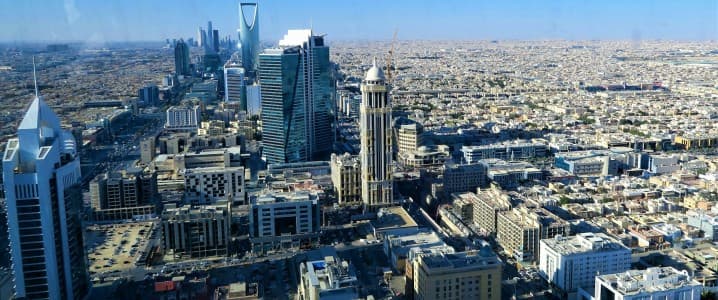Saudi Arabia is reassessing the scope and timeline of its $500-billion NEOM initiative, according to Bloomberg and CNBC, with officials reportedly reviewing key components of The Line in response to deepening financial strain across the kingdom’s Vision 2030 infrastructure program. The move comes amid mounting vendor arrears and a liquidity crunch that has prompted an urgent reallocation of energy-sector capital and personnel.
According to sources cited by CNBC, planners have frozen development on large portions of The Line, NEOM’s flagship linear city concept, and slashed active construction manpower by 35% since April. The labor cutback reflects a broader slowdown as fiscal priorities shift away from breakneck expansion and toward cash preservation.
The reassessment creates wider uncertainty, including surrounding energy-linked subprojects embedded within NEOM, notably the high-profile green hydrogen complex nearing 80% completion in Oxagon, the city’s industrial hub. The hydrogen plant, which is being jointly developed by Air Products, ACWA Power, and NEOM and which recently reached 80% completion, is a pillar of Saudi Arabia’s long-term strategy to dominate the global hydrogen economy.
Yet financial constraints are now threatening project continuity across the Vision 2030 portfolio, with sources close to the project suggesting that Riyadh is scrambling to raise fresh liquidity, and internal austerity measures are also being implemented.
“One big element that Neom is asking for is to look at commercialising aspects of the city and how it could turn into something that makes business sense,” Bloomberg reporter Abeer Abu Omar said on Bloomberg TV. “We don’t know what the outcome is,” she continued. “It could be downsizing, it could be taking a different shape.”
Strategic reviews are common for megaprojects, and Bloomberg indicates that the result of the re-assessment could still be to stick with the existing plan instead of scaling back or delaying certain elements. A PIF review of The Line is part of the phased planning of the project.
Tim Callen, visiting fellow at the Arab Gulf States Institute, told CNBC that the assessment would likely look at “technical feasibility, financing and also economic impact”. “I think these are all areas where people have had questions in the past. Is the technology there to actually achieve what Neom wants to do? Is the cost of development too high,” Callen stated. “That’s clearly become a more pressing issue as oil prices have headed down the last couple of years.”
By Charles Kennedy for Oilprice.com
More Top Reads From Oilprice.com:

